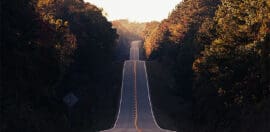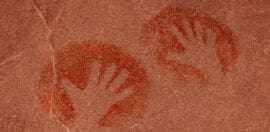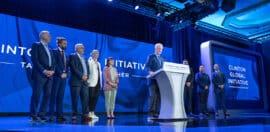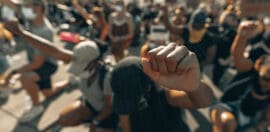Critical gaps in Australia’s Holocaust knowledge revealed

27 January 2022 at 8:38 am
“There is a clear benefit to the social fabric of Australia by improving Holocaust knowledge”
Despite Australia being home to the largest number of Holocaust survivors per capita outside Israel, nearly a quarter of the adult population has little to no knowledge of the Holocaust, new research has found.
Released on Thursday to mark International Holocaust Remembrance Day, the Deakin University research found that only 25 per cent of survey participants had visited a holocaust museum in Australia or overseas, and 81 per cent had never had an in-person talk or lecture from a Holocaust survivor
Despite this, the survey showed many Australians did have some understanding of the Holocaust. Out of the 3,522 responses to the survey, almost 70 per cent knew that the Holocaust refers to the genocide of Jews, 80 per cent knew that the Holocaust happened between 1933 to 1945, and just over half correctly identified that the number of Jews murdered was approximately 6 million.
When it came to Holocaust denial, about 2 per cent denied that the Holocaust happened (although 6 per cent neither agreed nor disagreed), and 75 per cent disagreed or strongly disagreed that “the scale of the Holocaust is exaggerated”.
Commissioned by Gandel Foundation, it’s the first time data has been collected to map the knowledge and understanding that Australians have of the Holocaust.
Gandel Foundation’s CEO, Vedran Drakulic OAM, told Pro Bono News that having this research would be incredibly beneficial to informing and improving the foundation’s philanthropy.
“For all the organisations that we support, like Holocaust museums and so on, we felt it would be important to understand who knows what, where the gaps are, and how best we can improve on that Holocaust education,” Drakulic said.
Millennials are a group to target
While almost a quarter of adults reported having little to no knowledge of the Holocaust, when it came to millennials, that figure rose to 30 per cent.
But despite being the age group with the lowest levels of factual knowledge, it was the group with the highest level of Holocaust awareness. Drakulic said that this created an opportunity to better connect with millenials on the topic.
“There is a clear message in the research that they care more about the Holocaust and the messages of the Holocaust than other generations,” he said.
“We just need to help them learn a bit more about the historical facts of the Holocaust.”
While the federal government has committed funding to redevelop existing and build new Holocaust museums across all capital cities in Australia, and the Victorian government has introduced mandatory Holocaust education in years nine and 10, Drakulic said there was still a long way to go.
“Nearly 80 per cent of respondents said that Holocaust Museum education centers are valuable, so I think the question we now have to ask ourselves is how we can help bring those people to visit and learn about the Holocaust,” he said.
Applying past history to a modern context
Just over 80 per cent of respondents had no knowledge of Australian-related Holocaust events. These included a protest by Indigenous leader and human rights activist William Cooper against the Nazis’ Kristallnacht in 1938, or Australia’s stand at the Evian Conference – a pre-war meeting to decide what to do about Jews displaced by the Nazis – where Australia was one of several countries that refused to offer refuge.
Members of the Deakin University research team, Associate Professor Steven Cooke, Dr Donna-Lee Frieze, Professor Andrew Singleton and Dr Matteo Vergani, also believe there were important lessons to be learned from the Gandel Holocaust Survey.
“Not many people know about Australia’s hard-line attitude towards Jewish refugees before the Second World War,” Dr Cooke said.
“How does knowing that history help us to, for instance, reflect on our attitudes towards asylum seekers today?”
The survey also found that, on average, those with comparatively higher levels of Holocaust awareness had warmer feelings towards minority or disadvantaged groups including Hindus, Muslims, Buddhists, asylum seekers and Australia’s First Nations peoples.
Drakulic said that improving Holocaust knowledge amongst Australians would go a long way to improving the social fabric of society.
“There is a clear connection and clear benefit to the social fabric of Australia from the Holocaust knowledge,” he said.
“By strengthening Holocaust knowledge and awareness in this country, we can really reduce anti-semitism and also other forms of racism in the community.”
Researchers have recommended the survey be repeated in five and then 10 years to evaluate and compare the impact on Holocaust education on Holocaust knowledge and awareness – and on community attitudes.








